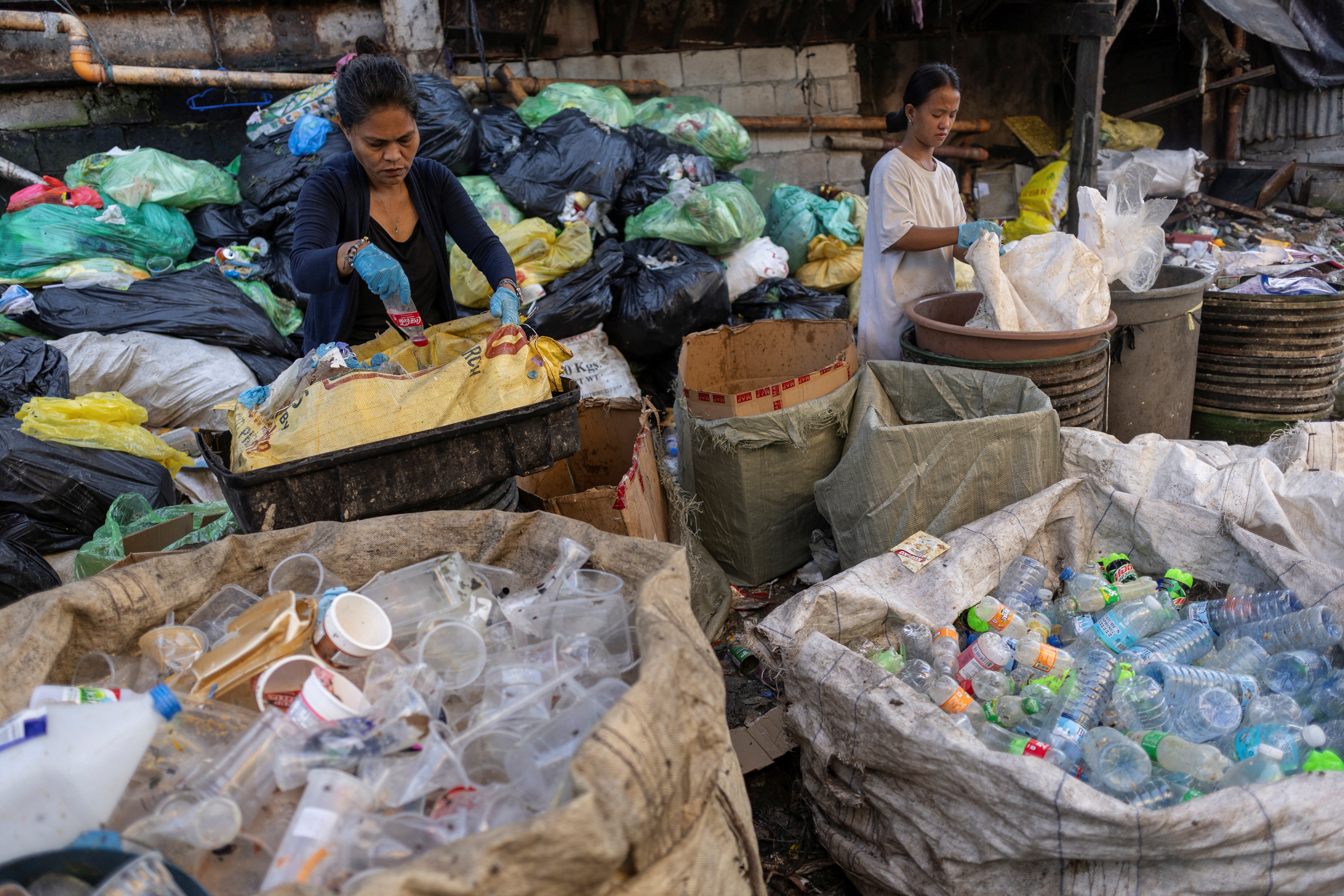Reducing waste is critical for building a circular economy: Here's how local solutions can get us there

Local solutions aimed at building a circular economy can help tackle the issue of reducing waste. Image: REUTERS / Hector Mata
Listen to the article
- Tackling waste is essential to meeting the Sustainable Development Goals and building a circular economy.
- Global waste production is unequal — rich countries produce far more than their poorer counterparts.
- But any solution to waste must embrace local dimensions, which furthers social inclusion and improves efficiency.
We understand the building blocks required to build a new circular economy. At its core, the circular economy must be regenerative in its design and execution.
The UN’s Sustainable Development Goals can play a key role in delivering a circular economy.
Resource Recovery and waste management are essential parts of a circular economy. Yet, when it comes to resource recovery, we are in a crisis. There is large-scale global resistance to taking accountability for the materials we use and consume.
The world's waste is not produced equally
In 2020, the world economy was valued at an estimated US $84 trillion. More than 50% of this came from nature in the form of food, clothing, housing and raw materials for manufacturing.
The world uses over 100 billion tonnes of natural resources every year. Resource extraction has more than tripled since 1970, including a five-fold increase in the use of non-metallic minerals and a 45% increase in fossil fuels. The extraction of materials is primarily responsible for biodiversity loss and climate change. This will only worsen until we start using our natural capital in a contained and systemic manner.
As nature declines, the prospects for business success and future prosperity dwindle. Conversely, there are considerable business opportunities for those committed to restoring natural ecosystems.
Global waste generation is estimated to increase to 2.2 billion tonnes per year by 2025. High-income countries produce 34% of the world’s waste — but account for only 16% of the world’s population. Only 15-20% of the waste generated globally is recycled. In fact, compared to the countries of the Global North, the countries of the Global South have much better recycling figures.
Mismanagement of waste is not only harming human health and the environment but is also exacerbating climate change. To meet the challenge of climate change, it is essential to design ways to use and reuse our resources, preventing as much as possible from ending up in landfills and harming the environment.
Waste management requires local solutions
In India and across parts of Asia, there is a crisis around waste management. The Indian economy has made provisions to meet the aspirations of many wealthy and middle-class households — but there is immense potential to do more in waste management infrastructure and operations. The Indian government has put out a series of regulations that govern all waste generators, including the municipal corporation, industry, the corporate sector and consumers. Every stakeholder is expected to comply with regulations — but all too often, the regulations are not taken seriously nor enforced strictly enough.
Decentralised systems for maximum resource recovery are the way around this problem. Two principles of decentralised waste management exist: segregation at source and local management of segregated fractions to ensure maximum resource recovery. This system ensures waste is sorted and graded at the community level instead of being transported to a centralised hub, thus helping reduce processing and transportation costs and ensuring organizations, households and individuals take responsibility for their waste.
Decentralised waste management driven by systems and processes ensures accurate data collection and reporting, helping organizations achieve sustainability goals.
Decentralised waste management systems also help build the livelihoods of waste workers in emerging economies, who are often socially marginalised and work in the informal sector.
Social inclusion at the heart of the circular economy
Social inclusion must be at the core of any system, with an emphasis on improving the safety, health, efficiency and wages of waste workers. Decentralisation of waste management not only ensures localised resource recovery but also helps integrate the informal workers into the social framework.
Organizations like Saahas Zero Waste are working toward this effort. The company’s low-waste processing facilities ensure that 96% of the waste generated is diverted away from landfills by sorting the segregated dry waste.
Even as we push for resource recovery, it is essential to recognise that resource recovery is just the first step towards building a circular economy. If we have to move away from the use of virgin materials, we must then connect resource recovery with closed-loop recycling.
According to Saahas’ Zero Waste Circular Impact Report 2022, of the 25,000 metric tonnes of plastic waste the company recovered, only 10,000 was recycled. And a negligible fraction of this recycled plastic contributed to closed-loop recycling — much work is yet to be done.
Industry and government must work towards drastic shifts in business models and practices that will give significant social and environmental benefits alongside economic growth and human well-being.
Don't miss any update on this topic
Create a free account and access your personalized content collection with our latest publications and analyses.
License and Republishing
World Economic Forum articles may be republished in accordance with the Creative Commons Attribution-NonCommercial-NoDerivatives 4.0 International Public License, and in accordance with our Terms of Use.
The views expressed in this article are those of the author alone and not the World Economic Forum.
Stay up to date:
SDG 13: Climate Action
Forum Stories newsletter
Bringing you weekly curated insights and analysis on the global issues that matter.
More on Circular EconomySee all
Felipe Basso
November 13, 2025







